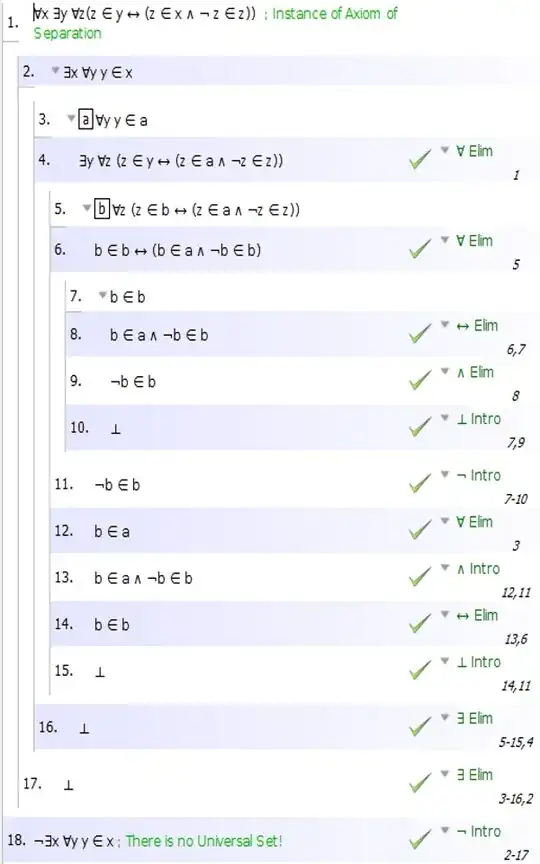This is just Russell's paradox. Suppose there were a set of all sets, $U$. By separation, we get $$R=\{x\in U: x\not\in x\}.$$ Since $U$ contains all sets, we have that the "$\in U$" can be omitted: $$R=\{x: x\not\in x\}.$$ That is, we have
$\forall x(x\in R\iff x\not\in x)$.
But now consider taking $x=R$: we get $R\in R\iff R\not\in R$, which is a contradiction.
To formalize this in first-order logic, here are the key things you'll need to prove:
$\forall x\exists y\forall z(z\in y\iff z\in x\wedge z\not\in z)$. This is an instance of separation: "for each set $x$, the set $\{z\in x: z\not\in z\}$ is a set."
$\forall x[\forall y(y\in x)\implies \forall y((\forall z(z\in y\iff z\in x\wedge z\not\in z))\implies (\forall z(z\in y\iff z\not\in z)))]$. Basically, if $x$ is the universal set then the set of elements of $x$ not containing themselves is in fact the set of all sets not containing themselves.
$(\exists x\forall y(y\in x))\implies (\exists x\forall y(y\in x\iff y\not\in y))$. If there is a set of all sets, then there is a set of all sets not containing themselves.
$\forall x[(\forall y(y\in x\iff y\not\in y))\implies (x\in x\iff x\not\in x)]$. If there is a set of all sets not containing themselves, we get a contradiction.
No particular step here is hard, but if you're really doing a completely formal deduction it will be a bit tedious. The key bulletpoint is the second one (the first is an immediate application of separation, the third follows from the first and second, and the fourth is just unwinding the definitions). The second bulletpoint is intuitively true since, if $x$ is a universal set, then the formulas "$z\not\in z$" and "$z\in x\wedge z\not\in z$" are equivalent; now you need to figure out how to put that equivalence "inside" some quantifiers in the appropriate way.
